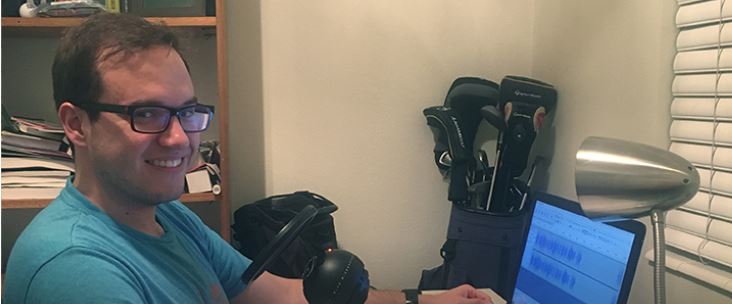5 Essentials for Preparing for Medical School, According to a DO Student
Published December 12, 2019
By AACOM
Choose DO

Gearing up for medical school is a daunting process. But learning about your prospective schools’ student body, preparing well for your exams and developing a study strategy before you start classes will go a long way toward putting your mind at ease.
That’s according to Phil Bennett, a fourth-year medical student at Rocky Vista University College of Osteopathic Medicine in Parker, CO. Bennett plans to go into pathology and hosts a podcast for osteopathic physicians, students, and pre-meds called “Osteopod.” He’s shared with us his five tips for students preparing for med school, and what you can do now to maximize your chance of success.
- Go to a place that you feel comfortable in—both because of the people, and where the school is located.
“Talk to and ask current students what the student body is like,” Bennett says. “Get a feel for the personality of the school. You will spend hours with these students, and you’ll work together throughout your journey to becoming a physician.” He also notes that the area is just as important as the community itself: “Be in a location where you feel comfortable living. I always saw my peers; we worked hard, and when the weekend came, we played hard. That’s how we came back refreshed and ready to tackle another week of school. It’s important to find a location where you can do the things you love to do, and be with the people who can support you best.”
- Find out how you learn best.
“Medical school was challenging for me because I had to learn how to learn,” Bennett admits. “Med school is a different beast compared to undergraduate studies. In the end, I survived and thrived on my board exams because of Sketchy Medicine, a cartoon mnemonic that teaches you medical concepts. But it took me until my second year to find out that I was a visual learner.” “It really helps to try out different styles of learning before you get to med school,” Bennett advises. “That way you have a process you can rely on by the time you get there.”
- Determine if the DO Philosophy of treatment is right for you.
“It will enhance your medical school experience and your profession if you let it,” Bennett says. “I had never experienced it personally before medical school. At first it was a challenge to learn alongside the rest of the medical material. After gaining some experience and skills, it began to grow on me, and when I got the chance to practice on real patients during my clerkships, it started to come together and make sense.” Bennett also notes that OMT can help students in any number of medical specialties.
“Even though I’m going into a specialty that doesn’t primarily use OMT, I approach problems from a holistic view. And even in pathology, I have had experiences where even my tactile skills came in handy. In the end, I think it’s pretty neat to be able to treat other people osteopathically, and I can treat family and friends whenever I can.”
- The amount of effort you put into studying for exams determines your outcome, not the school you go to.
“One concern that I find people have when deciding to go to an osteopathic versus an allopathic school is the placement for residencies,” Bennett says, “and how well you do on your board exams, either USMLE STEP or COMLEX LEVELs. Across the board, students use the same materials to study for these exams, and if you use them efficiently in addition to doing well in your classes, you’ll do just fine.”
- DOs can go into any specialty they want.
“I’ve seen plenty of students go into every type of residency from DO schools,” Bennett says. “Perhaps the ratio of students in highly competitive specialties such as dermatology or surgery are less in DO schools, but I feel a lot of DO students choose primary care specialties voluntarily, rather than feeling pigeon-holed into them.”
“Come to a DO school if you really want to,” Bennett advises. “If you talk to physicians and residents who have made it in a specialty you are considering, you will learn what you need to do to get in.”
